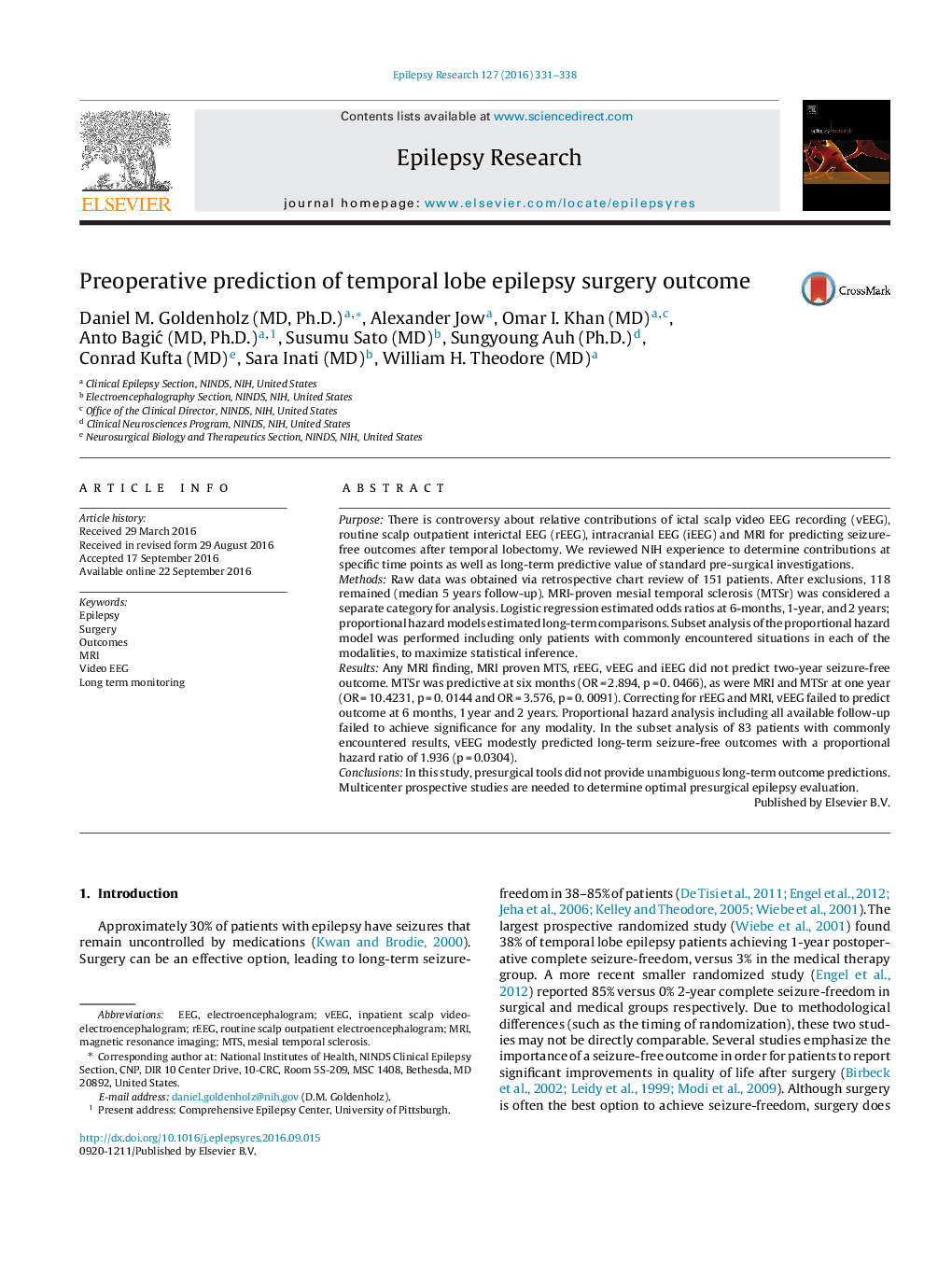| Article ID | Journal | Published Year | Pages | File Type |
|---|---|---|---|---|
| 6015091 | Epilepsy Research | 2016 | 8 Pages |
â¢MTS predicted outcome at 6 months, as did MRI and MTS at 1 year.â¢Routine EEG, MRI findings, ictal video EEG, and MRI proven MTS did not predict 2-year seizure outcome.â¢Analysis of all available data failed to achieve significant long-term outcome prediction for any modality.
PurposeThere is controversy about relative contributions of ictal scalp video EEG recording (vEEG), routine scalp outpatient interictal EEG (rEEG), intracranial EEG (iEEG) and MRI for predicting seizure-free outcomes after temporal lobectomy. We reviewed NIH experience to determine contributions at specific time points as well as long-term predictive value of standard pre-surgical investigations.MethodsRaw data was obtained via retrospective chart review of 151 patients. After exclusions, 118 remained (median 5 years follow-up). MRI-proven mesial temporal sclerosis (MTSr) was considered a separate category for analysis. Logistic regression estimated odds ratios at 6-months, 1-year, and 2 years; proportional hazard models estimated long-term comparisons. Subset analysis of the proportional hazard model was performed including only patients with commonly encountered situations in each of the modalities, to maximize statistical inference.ResultsAny MRI finding, MRI proven MTS, rEEG, vEEG and iEEG did not predict two-year seizure-free outcome. MTSr was predictive at six months (OR = 2.894, p = 0. 0466), as were MRI and MTSr at one year (OR = 10.4231, p = 0. 0144 and OR = 3.576, p = 0. 0091). Correcting for rEEG and MRI, vEEG failed to predict outcome at 6 months, 1 year and 2 years. Proportional hazard analysis including all available follow-up failed to achieve significance for any modality. In the subset analysis of 83 patients with commonly encountered results, vEEG modestly predicted long-term seizure-free outcomes with a proportional hazard ratio of 1.936 (p = 0.0304).ConclusionsIn this study, presurgical tools did not provide unambiguous long-term outcome predictions. Multicenter prospective studies are needed to determine optimal presurgical epilepsy evaluation.
